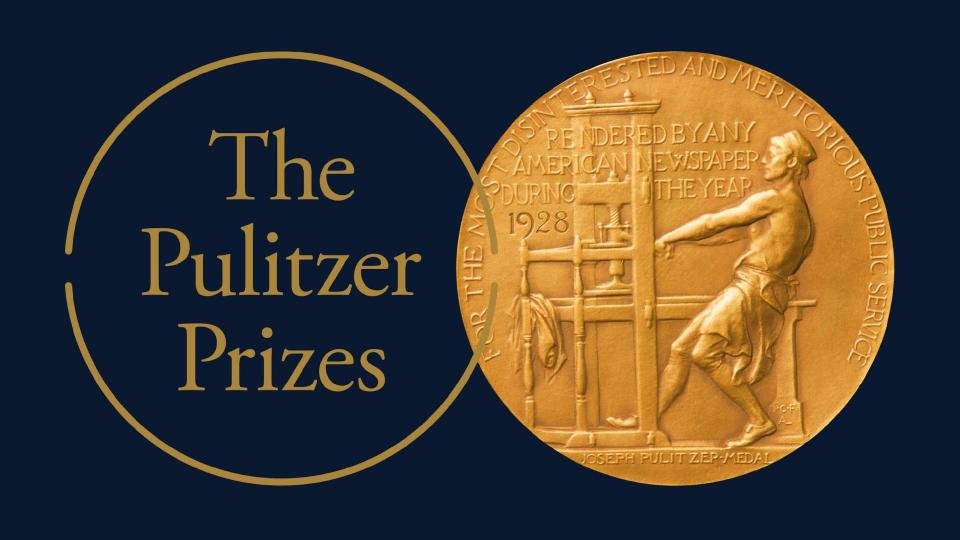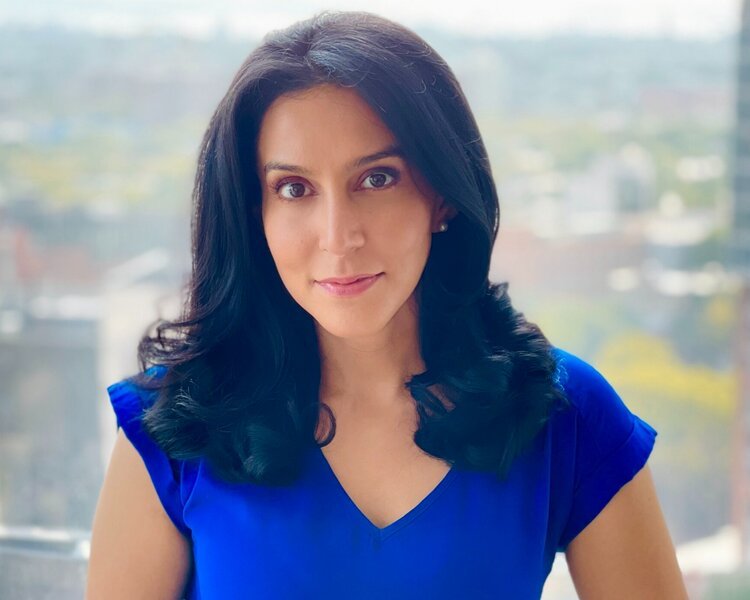
The 2022 Pulitzer Prizes were called the most diverse to date, following a showing that included a wide array of winners from backgrounds that had never previously been represented.
Marjorie Miller, the administrator of the Pulitzers, said the diversity among winners is representative of growing diversity among newsrooms.
“I think that as the newsroom populations are getting more diverse, it’s getting easier to get racial diversity and expertise diversity,” she said. “Then you get more diverse juries, and the board, over time, has gotten more diverse, and so they help present more diverse winners.”
Miller, vice president and global enterprise editor at The Associated Press, became administrator of the Pulitzer Prizes on April 21, shortly before juries began selecting the 2022 winners.
“The most diverse juries in the history of the prizes chose finalists from many walks and stages of life,” the 2022 Pulitzer Prize announcement said.
The winners include leatherwork artist Winfred Rembert; Ravon Chacon, the first composer from the Navajo nation to win a Pulitzer; Natalie Wolchover, a specialist in physics; Kristina Wong, the first Asian American woman playwright to be named as a finalist in drama; and Mai Der Vang, the first Hmong American finalist in the history of the arts and letters prizes.
This year’s prizes also acknowledged the difficulties newsrooms are facing nationwide.
“The board honored local newsrooms doing journalism that its communities can count on,” the announcement said. “They were particularly struck by the resourcefulness of small or diminished news organizations.”
Miller said that the Pulitzer Prize administration has kept diversity in mind over the years, including various media types and broadening the geographic regions where nominees and judges are based. The shift toward diversity has progressed over time, Miller said.
“I think that the Pulitzers have always made a concerted effort for diversity — racial, but also geographic and gender diversity,” she said.
Miller said that showcasing different voices is critical to telling the stories of those who are underrepresented. It becomes more apparent that some voices have been missing once they are represented at all, she said.
“Historically, more men were in positions of power in the country, and more men were being quoted in the paper, and men were writing the stories,” she said. “I don't think men used to notice that everyone who was quoted in the story was a man.”
She said the same can be true for editors who are people of color, who may have different story ideas and send journalists to different neighborhoods for stories.
“It might not be as obvious that there weren’t as many diverse voices in the story if you have an all-white newsroom,” she said.
Miller said the Pulitzer administrators select people from many areas of the country and of different genders, ethnicities and skill sets. She said administrators have been increasing the ways they represent different types of journalism within their juries, such as including data journalists, “because increasingly, journalism is multiformat,” she said.
Juries are based on recommendations from board members and put together by the Pulitzer administrator and staff. There are typically five people on each jury.
“They go through hundreds of entries and narrow it down to three finalists,” she said.
The juries present those finalists to the board without assigning priorities. Then the board members debate their selections and pick a winner.
“What struck me is how difficult it is to make a choice because the work is so strong, and you’re picking from among the best of the best journalists of the year and the best of the best books and the best of the best poetry,” she said. “It’s a very difficult choice.”
Miller said she was impressed by all of the work that was presented. Some that stood out to her were those that gave a voice to populations whose plights had not previously been heard.
She said she was moved by the work of a feature writing finalist, Anand Gopal, a contributing writer for The New Yorker and her piece, “The Other Afghan Women.”
“It was really about women out in the countryside who had not particularly benefited from a more liberal government and were not anti-Taliban in the way that I think most Americans think they were,” she said. “It was a singular piece, I thought, because he reached and spent time with a population we didn’t really hear from before that at all.”

She said she was also touched by the feature writing winner, Jennifer Senior of The Atlantic. Senior was awarded the prize “for an unflinching portrait of a family’s reckoning with loss in the 20 years since 9/11, masterfully braiding the author's personal connection to the story with sensitive reporting that reveals the long reach of grief,” the announcement said.
“It was just a beautifully structured and written, heartfelt piece,” Miller said.
She also highlighted the International Reporting prize, awarded to The New York Times staff, notably Azmat Khan. The prize was awarded “for courageous and relentless reporting that exposed the vast civilian toll of U.S.-led airstrikes, challenging official accounts of American military engagements in Iraq, Syria and Afghanistan.”

“I thought that The Times’ work, led by Azmat Khan, on U.S. air strikes was a really important piece of journalism that exposed just how high the civilian toll was from U.S. air strikes. I thought that was very important work,” she said.
She also noted the work of the editorial staff of The Times-Picayune and The New Orleans Advocate. They were recognized “for editorials demanding transparency and accountability on behalf of the people of Louisiana when an investigative reporter was sued by the state’s attorney general for making a public records request.”
“They went on to teach people how to file so they could inundate them with FOIA requests,” she said. “I thought that was a great tactic and really educational.”
She also noted the abundance of data journalism among this year’s winners, such as The New York Times’ examination of fatal police encounters beginning with traffic stops and the U.S. air strike survey.
Miller said she was honored to be a part of journalism in a historic time for the industry.
“It’s just such a privilege to be a part of this organization that stands for the most distinguished and creative and impactful journalism in the country. It’s a moment in the country when journalism is really under assault. It’s been under assault for quite a while, but it’s now under assault by fact deniers.”
She said she believes that promoting quality journalism will remind the public of how critical it is to maintaining a functional society.
“I think it’s very important to keep promoting this work, and showing the work at local levels, and showing that it is a pillar of democracy,” she said.
Miller said she hopes to use her platform to further public education on journalism.
“I hope to do more with the organization and with the brand, to go around the country, to talk about the difference between opinion and fact-based reporting and what it takes to do these deeply reported and carefully researched and edited stories because I do think there are a lot of people in the country who don’t really know the difference,” she said.
Her first few months in her role have allowed her to gain a firm understanding of the position and how to best use it to promote journalism.
“I feel like I’m learning the organization and how it functions, and I hope that I will be able to expand its impact with the winning journalism and journalists,” she said.
She plans to highlight the winners and also showcase their work in a way that increases public understanding.
“In addition to honoring some of the best journalists in the country this year, I want to ask the journalists to help in this mission of showing the public how it’s done, how they do their work, what role it plays — particularly in local journalism but also national journalism. I want to look deeply at how they do the work, at how sitting down and writing an opinion is different from writing a reported story with data, witnesses, first-hand accounts,” she said. “I think that the Pulitzer name can be used in a more proactive way throughout the year, and that’s what I’d like to do.”
Alyssa Choiniere is an Editor & Publisher contributor. She is a journalist based in southwestern Pennsylvania covering a variety of topics including industry news and criminal justice.
Comments
No comments on this item Please log in to comment by clicking here